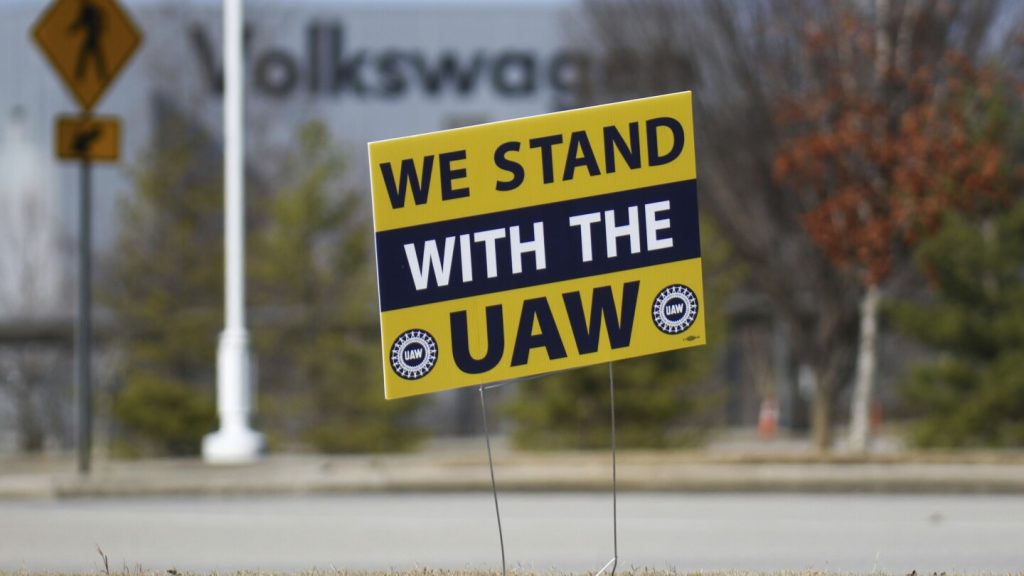The southern governors, including Tennessee Gov. Bill Lee and five others, are urging workers at Volkswagen’s Tennessee factory to vote against union representation in an upcoming election. They argue that voting for a union will put jobs at risk, citing the aftermath of a strike by Detroit automakers last year that resulted in companies reconsidering investments and cutting jobs. The governors emphasize the importance of bringing good-paying jobs to their states and express concern that a successful union drive will hinder manufacturing growth.
The United Auto Workers (UAW) is leading the unionization efforts at Volkswagen’s Chattanooga plant, with about 4,300 workers set to vote on representation. The election is seen as a test of the UAW’s ability to organize nonunion auto factories nationwide, following successful negotiations with Detroit automakers last fall that resulted in significant pay raises for workers. The UAW has been targeting nonunion auto plants, including those run by Tesla, Nissan, Mercedes-Benz, and others, with plans to represent nearly 150,000 workers across the South.
Despite the pushback from the governors, the UAW has not commented on their statements. The union has been making strides in recruiting new members at nonunion auto plants, with workers at a Mercedes-Benz plant in Alabama recently filing for a vote on UAW representation. The agreements reached by the UAW with Detroit automakers include substantial pay raises for workers, with the potential for a top assembly wage of $42 per hour by the contract’s end in 2028. Volkswagen has stated that its workers can earn over $60,000 per year, not including bonuses, and that it pays above the median household income in the region.
Volkswagen has expressed support for the workers’ right to a democratic process and their decision on representation. The company has stated that it will fully support an NLRB vote to ensure that every team member can vote in privacy on this important decision. Workers at the VW plant have mentioned wanting more input on schedules, benefits, and pay, indicating a desire for a union to represent their interests. The UAW has previously come close to securing representation for VW workers in two previous elections, with narrow rejections in 2014 and 2019.
The outcome of the union election at Volkswagen’s Chattanooga plant will have significant implications for both workers and the broader labor movement. With governors voicing concerns about job security and manufacturing growth, and the UAW advocating for workers’ rights and better compensation, the vote will serve as a pivotal moment in determining the future of labor relations in the auto industry. As workers prepare to cast their votes, the results will not only impact their wages and working conditions but also shape the trajectory of unionization efforts at nonunion auto plants across the country.


